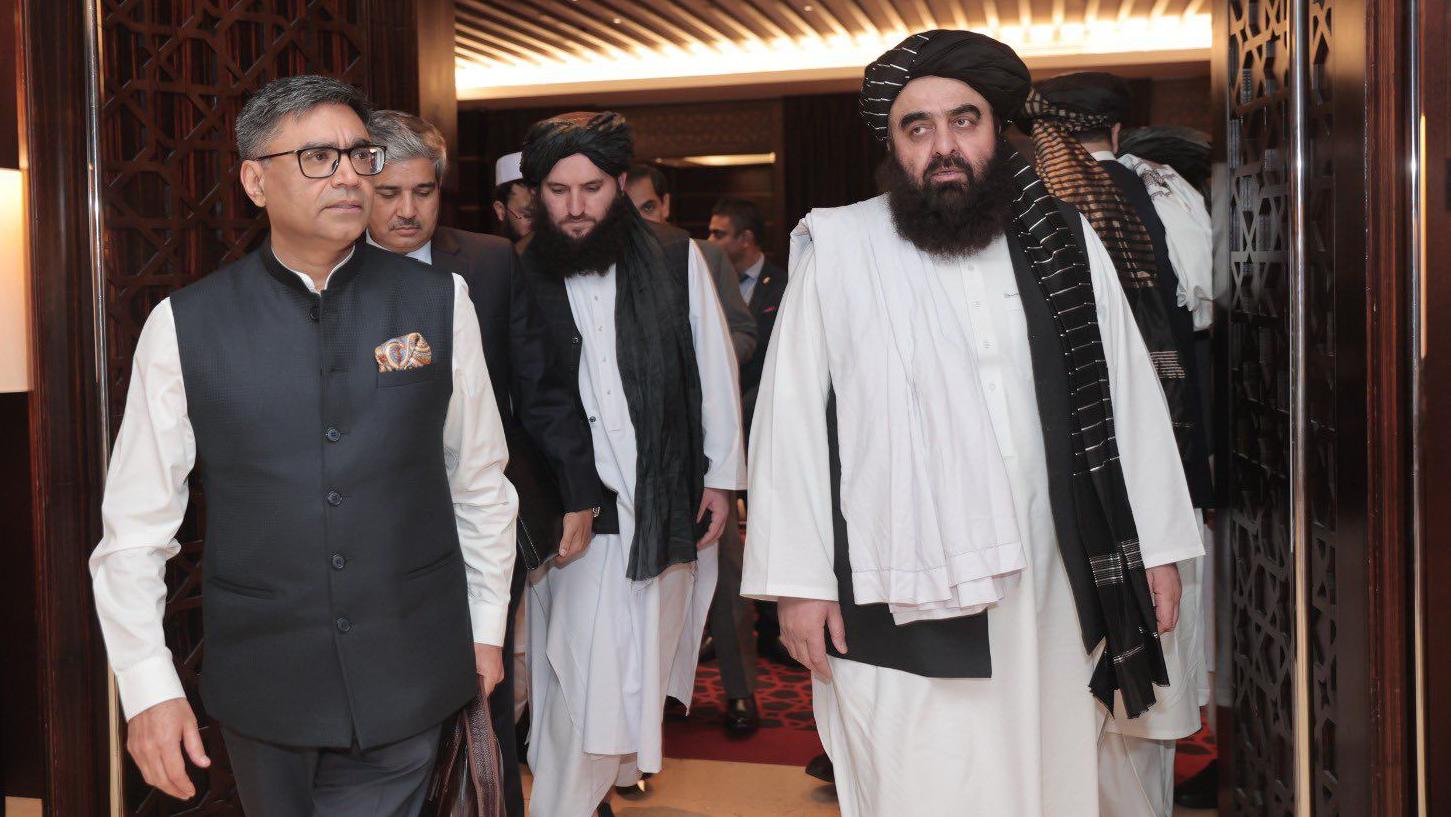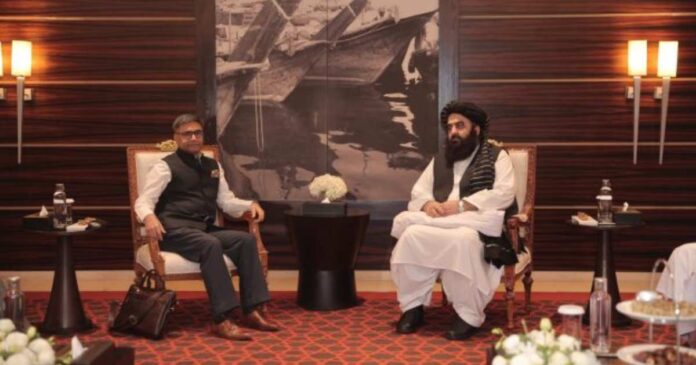The recent India-Taliban meeting between Foreign Secretary Vikram Misri and the Taliban’s acting Foreign Minister Amir Khan Muttaqi in Dubai has sparked debate over New Delhi’s evolving strategy in Afghanistan. This is the first high-level interaction between the two, reflecting India’s cautious yet deliberate approach to engaging with the Taliban government since its 2021 takeover.
Balancing Influence and Ethics
For decades, India has invested over $3 billion in Afghanistan, focusing on infrastructure, education and health. However, following the Taliban’s return to power, India’s engagement diminished, leaving a gap it now seeks to bridge. By re-establishing ties, India aims to protect its strategic interests, including access to Central Asia and countering regional instability.

However, these steps raise an ethical dilemma. While India claims to be the world’s largest democracy, it keeps mum about the Taliban’s regressive policies—such as forcing girls out of schools. In fact, Talibans’ demands for developmental assistance starkly contrast with their actions. Their call for aid raises several questions.
Regional Geopolitics Playing into the Scenario
India’s overtures come at a time when Pakistan, historically the Taliban’s closest ally, faces deteriorating relations with the group. Recent border skirmishes and Pakistan’s military actions in Afghanistan have strained ties. India’s engagement allows the Taliban to showcase autonomy and counter perceptions of being a mere extension of Pakistan’s influence.
India’s strategy also aligns with the regional trend. Countries like Russia, China and Iran have maintained active relations with the Taliban, recognising the pragmatic need for dialogue in a volatile region. By re-engaging, India avoids isolation in Afghanistan’s geopolitical landscape.

Visa Diplomacy and Practical Gains
One concrete result of the Misri-Muttaqi meeting could be the resumption of visas for Afghans seeking education, healthcare and trade opportunities in India. India had drastically cut back on issuing visas after the Taliban took over, which drew much criticism. Resuming this practice would help rebuild goodwill among Afghan citizens and strengthen people-to-people ties.
Challenges Ahead
Despite these efforts, India has major challenges. Meeting only with the Taliban could further isolate other opposition groups and hinder future options in Afghanistan’s mercurial politics. Additionally, the Taliban’s ideological inflexibility and association with extremist movements raise security concerns.
Read More: Taliban Ban Windows Overlooking Areas Used by Women in Afghanistan
The Road Ahead
India’s measured re-engagement with Afghanistan is pragmatic in acknowledging the Taliban’s present dominance. In the long run, though, it needs diversified relationships, ethical balance with strategic imperatives and grappling with the Afghan societal complexities.
While India takes this delicate route, the consequence of its strategy will determine not only its presence in Afghanistan but also its presence across the entire region. Until now, New Delhi must tread softly while ensuring its moves are consonant with its strategic objectives as well as its democratic values.
Stay tuned to Brandsynario for latest news and updates










































